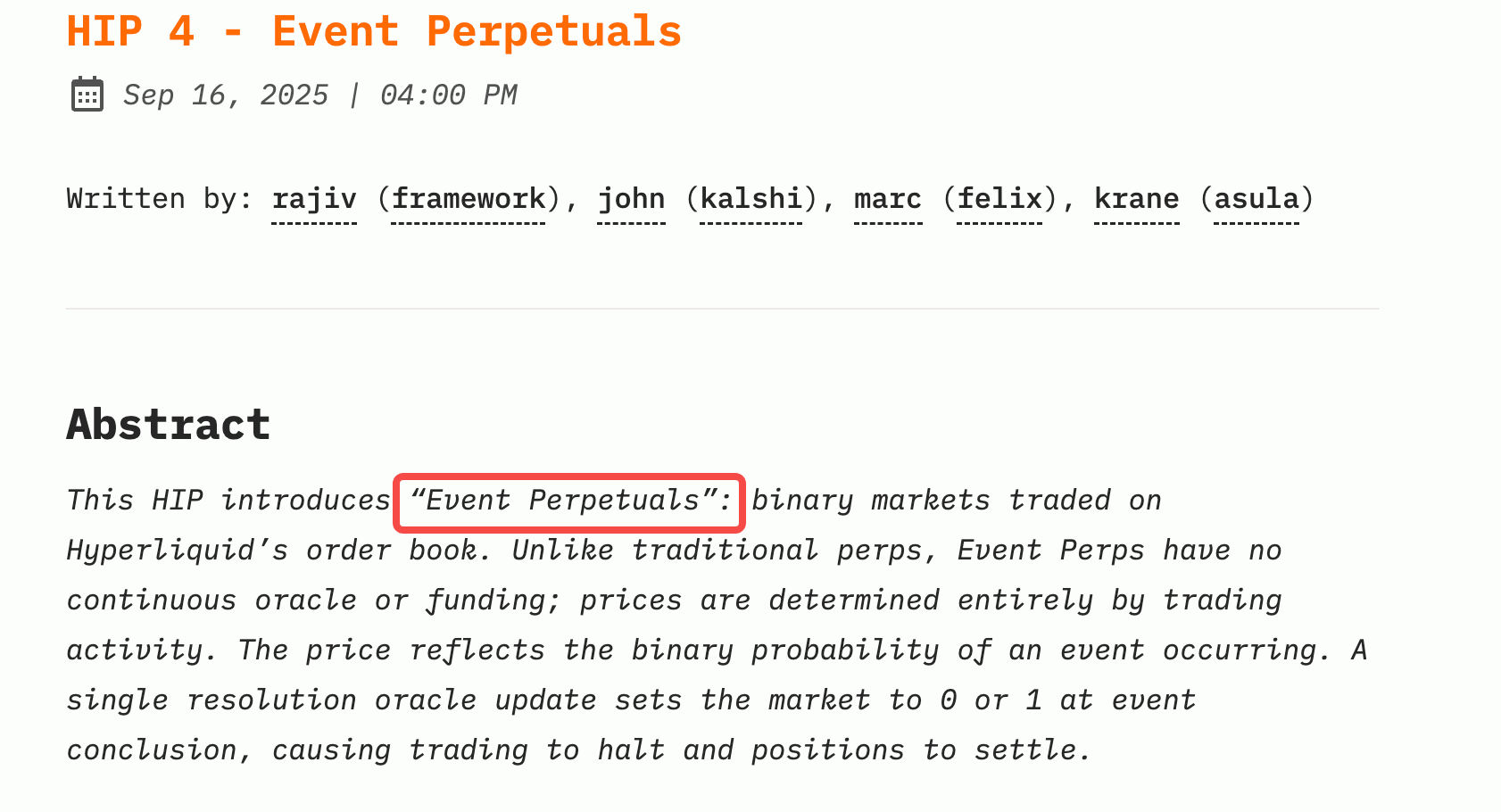|
真正开始之前,我们有必要先了解一下基本的概念和数据结构。其实我也不时太了解这些,尽管自己最近一直在看,而且查了不少的资料,但是也不敢保证自己的理解就是正确的,如果有什么错误,欢迎指正。
1. Kset,Kobject 和Ktype
如果仅仅是想要了解驱动的话,这三个结构可以暂时不考虑。但是如果你想要进一步的了解内核的话,那么至少应该对它们了解一些。Linux源码目录下的Documentation里面有一个kobject.txt文件,针对它们作了一些介绍。kobject是一个结构,通常被嵌入其他的结构中;每个kobject中包含一个名字,一个引用数量(referenced count)。ktype为kobject中的一个变量,由于标识一个kobject的类型;而kset则为一系列的kobject,这些kobject的ktype可以相同,也可以不同。关于其具体内容请参阅前面提到的文档。
这些东西和驱动编写没有太直接的关系,但之所以在这里提到这些,是因为系统启动的时候会扫描与其链接的总线(bus)和设备(device)并建立这些kset用于保存这些信息。例如对于一个PCI总线,Linux启动后会扫描所有挂载在该总线上的设备,并用一个队列来描述它们;同时,系统还维护一个driver的列队,只有设备列队上的设备有相应的驱动的时候,系统才可以正常的使用这个设备。
(个人对前面提到的这些仅限于了解,或者连了解也称不上,因此不多说,有兴趣的可以自行查阅相关资料。)
2. bus,pci_bus
<STYLE type="text/css"> </STYLE>
总线是CPU与外设沟通的重要手段,是计算机的重要组成部分。而PCI总线作为目前主流的总线之一,与作为PCI设备的网卡有关的几个结构为:bus_type和pci_bus_type。其中bus_type用来表示一个bus的类型,如ISA、PCI等等,其定义如下
|
struct bus_type {
const char *name;
struct bus_attribute *bus_attrs;
struct device_attribute *dev_attrs;
struct driver_attribute *drv_attrs;
int (*match)(struct device *dev, struct device_driver *drv);
int (*uevent)(struct device *dev, struct kobj_uevent_env *env);
int (*probe)(struct device *dev);
int (*remove)(struct device *dev);
void (*shutdown)(struct device *dev);
int (*suspend)(struct device *dev, pm_message_t state);
int (*suspend_late)(struct device *dev, pm_message_t state);
int (*resume_early)(struct device *dev);
int (*resume)(struct device *dev);
struct pm_ext_ops *pm;
struct bus_type_private *p;
};
|
<STYLE type="text/css"> </STYLE>
pci_bus_type作为bus_type的一个实例,规定了自己的一些特殊的操作,其定义如下:
|
struct bus_type pci_bus_type = {
.name = "pci",
.match = pci_bus_match,
.uevent = pci_uevent,
.probe = pci_device_probe,
.remove = pci_device_remove,
.shutdown = pci_device_shutdown,
.dev_attrs = pci_dev_attrs,
.pm = PCI_PM_OPS_PTR,
};
|
<STYLE type="text/css"> </STYLE>
上面这个定义里面的相关动作的句柄在涉及到PCI总线的特定操作的时候将会被调用,例如当试图将设备注册到PCI层的时候,pci_bus_match将会被调用。这个过程将会在后面的相关文章中给出。
3. Device,pci_dev,pci_evice_id和net_device
<STYLE type="text/css"> </STYLE>
3.1 device
device顾名思义是用来描述一个设备的,其构成比较复杂,这里仅仅给出定义,与PCI设备和驱动相关的部分将会在后文涉及到的时候详细介绍。其定义为:
|
struct device {
struct klist klist_children;
struct klist_node knode_parent; /* node in sibling list */
struct klist_node knode_driver;
struct klist_node knode_bus;
struct device *parent;
struct kobject kobj;
char bus_id[BUS_ID_SIZE]; /* position on parent bus */
const char *init_name; /* initial name of the device */
struct device_type *type;
unsigned uevent_suppress:1;
struct semaphore sem; /* semaphore to synchronize calls to its driver. */
struct bus_type *bus; /* type of bus device is on */
struct device_driver *driver; /* which driver has allocated this device */
void *driver_data; /* data private to the driver */
void *platform_data; /* Platform specific data, device
core doesn't touch it */
struct dev_pm_info power;
#ifdef CONFIG_NUMA
int numa_node; /* NUMA node this device is close to */
#endif
u64 *dma_mask; /* dma mask (if dma'able device) */
u64 coherent_dma_mask;/* Like dma_mask, but for alloc_coherent mappings as
not all hardware supports
64 bit addresses for consistent
struct device_dma_parameters *dma_parms;
struct list_head dma_pools; /* dma pools (if dma'ble) */
struct dma_coherent_mem *dma_mem; /* internal for coherent mem override */
/* arch specific additions */
struct dev_archdata archdata;
spinlock_t devres_lock;
struct list_head devres_head;
struct klist_node knode_class;
struct class *class;
dev_t devt; /* dev_t, creates the sysfs "dev" */
struct attribute_group **groups; /* optional groups */
void (*release)(struct device *dev);
};
|
<STYLE type="text/css"> </STYLE>
3.2 pci_device
pci_dev作为一种特殊的device,内核中专门给出来定义,其需要注意的细节也会在以后需要的地方给出。
|
struct pci_dev {
struct list_head bus_list; /* node in per-bus list */
struct pci_bus *bus; /* bus this device is on */
struct pci_bus *subordinate; /* bus this device bridges to */
void *sysdata; /* hook for sys-specific extension */
struct proc_dir_entry *procent; /* device entry in /proc/bus/pci */
struct pci_slot *slot; /* Physical slot this device is in */
unsigned int devfn; /* encoded device & function index */
unsigned short vendor;
unsigned short device;
unsigned short subsystem_vendor;
unsigned short subsystem_device;
unsigned int class; /* 3 bytes: (base,sub,prog-if) */
u8 revision; /* PCI revision, low byte of class word */
u8 hdr_type; /* PCI header type (`multi' flag masked out) */
u8 pcie_type; /* PCI-E device/port type */
u8 rom_base_reg; /* which config register controls the ROM */
u8 pin; /* which interrupt pin this device uses */
struct pci_driver *driver; /* which driver has allocated this device */
u64 dma_mask; /* Mask of the bits of bus address this
device implements. Normally this is
0xffffffff. You only need to change
this if your device has broken DMA
or supports 64-bit transfers. */
struct device_dma_parameters dma_parms;
pci_power_t current_state; /* Current operating state. In ACPI-speak,
this is D0-D3, D0 being fully functional,
and D3 being off. */
int pm_cap; /* PM capability offset in the
configuration space */
unsigned int pme_support:5; /* Bitmask of states from which PME#
can be generated */
unsigned int d1_support:1; /* Low power state D1 is supported */
unsigned int d2_support:1; /* Low power state D2 is supported */
unsigned int no_d1d2:1; /* Only allow D0 and D3 */
#ifdef CONFIG_PCIEASPM
struct pcie_link_state *link_state; /* ASPM link state. */
#endif
pci_channel_state_t error_state; /* current connectivity state */
struct device dev; /* Generic device interface */
int cfg_size; /* Size of configuration space */
/*
* Instead of touching interrupt line and base address registers
* directly, use the values stored here. They might be different!
*/
unsigned int irq;
struct resource resource[DEVICE_COUNT_RESOURCE]; /* I/O and memory regions + expansion ROMs */
/* These fields are used by common fixups */
unsigned int transparent:1; /* Transparent PCI bridge */
unsigned int multifunction:1;/* Part of multi-function device */
/* keep track of device state */
unsigned int is_added:1;
unsigned int is_busmaster:1; /* device is busmaster */
unsigned int no_msi:1; /* device may not use msi */
unsigned int block_ucfg_access:1; /* userspace config space access is blocked */
unsigned int broken_parity_status:1; /* Device generates false positive parity */
unsigned int msi_enabled:1;
unsigned int msix_enabled:1;
unsigned int ari_enabled:1; /* ARI forwarding */
unsigned int is_managed:1;
unsigned int is_pcie:1;
pci_dev_flags_t dev_flags;
atomic_t enable_cnt; /* pci_enable_device has been called */
u32 saved_config_space[16]; /* config space saved at suspend time */
struct hlist_head saved_cap_space;
struct bin_attribute *rom_attr; /* attribute descriptor for sysfs ROM entry */
int rom_attr_enabled; /* has display of the rom attribute been enabled? */
struct bin_attribute *res_attr[DEVICE_COUNT_RESOURCE]; /* sysfs file for resources */
struct bin_attribute *res_attr_wc[DEVICE_COUNT_RESOURCE]; /* sysfs file for WC mapping of resources */
#ifdef CONFIG_PCI_MSI
struct list_head msi_list;
#endif
struct pci_vpd *vpd;
};
|
3.3 pci_device_id
每一个设备上都有其生产厂家以及产品型号的标志,对于PCI设备来讲,内核用pci_device_id来表示,其定义和含义如下:
|
|
|
* (i.e. as seen by users in the "Space.c" file). It is the name
* the interface.
*/
char name[IFNAMSIZ];
/* device name hash chain */
struct hlist_node name_hlist;
/* snmp alias */
char *ifalias;
/*
* I/O specific fields
* FIXME: Merge these and struct ifmap into one
*/
unsigned long mem_end; /* shared mem end */
unsigned long mem_start; /* shared mem start */
unsigned long base_addr; /* device I/O address */
unsigned int irq; /* device IRQ number */
/*
* Some hardware also needs these fields, but they are not
* part of the usual set specified in Space.c.
*/
unsigned char if_port; /* Selectable AUI, TP,..*/
unsigned char dma; /* DMA channel */
unsigned long state;
struct list_head dev_list;
#ifdef CONFIG_NETPOLL
struct list_head napi_list;
#endif
/* The device initialization function. Called only once. */
int (*init)(struct net_device *dev);
/* ------- Fields preinitialized in Space.c finish here ------- */
/* Net device features */
unsigned long features;
#define NETIF_F_SG 1 /* Scatter/gather IO. */
#define NETIF_F_IP_CSUM 2 /* Can checksum TCP/UDP over IPv4. */
#define NETIF_F_NO_CSUM 4 /* Does not require checksum. F.e. loopack. */
#define NETIF_F_HW_CSUM 8 /* Can checksum all the packets. */
#define NETIF_F_IPV6_CSUM 16 /* Can checksum TCP/UDP over IPV6 */
#define NETIF_F_HIGHDMA 32 /* Can DMA to high memory. */
#define NETIF_F_FRAGLIST 64 /* Scatter/gather IO. */
#define NETIF_F_HW_VLAN_TX 128 /* Transmit VLAN hw acceleration */
#define NETIF_F_HW_VLAN_RX 256 /* Receive VLAN hw acceleration */
#define NETIF_F_HW_VLAN_FILTER 512 /* Receive filtering on VLAN */
#define NETIF_F_VLAN_CHALLENGED 1024 /* Device cannot handle VLAN packets */
#define NETIF_F_GSO 2048 /* Enable software GSO. */
#define NETIF_F_LLTX 4096 /* LockLess TX - deprecated. Please */
/* do not use LLTX in new drivers */
#define NETIF_F_NETNS_LOCAL 8192 /* Does not change network namespaces */
#define NETIF_F_LRO 32768 /* large receive offload */
/* Segmentation offload features */
#define NETIF_F_GSO_SHIFT 16
#define NETIF_F_GSO_MASK 0xffff0000
#define NETIF_F_TSO (SKB_GSO_TCPV4 << NETIF_F_GSO_SHIFT)
#define NETIF_F_UFO (SKB_GSO_UDP << NETIF_F_GSO_SHIFT)
#define NETIF_F_GSO_ROBUST (SKB_GSO_DODGY << NETIF_F_GSO_SHIFT)
#define NETIF_F_TSO_ECN (SKB_GSO_TCP_ECN << NETIF_F_GSO_SHIFT)
#define NETIF_F_TSO6 (SKB_GSO_TCPV6 << NETIF_F_GSO_SHIFT)
/* List of features with software fallbacks. */
#define NETIF_F_GSO_SOFTWARE (NETIF_F_TSO | NETIF_F_TSO_ECN | NETIF_F_TSO6)
#define NETIF_F_GEN_CSUM (NETIF_F_NO_CSUM | NETIF_F_HW_CSUM)
#define NETIF_F_V4_CSUM (NETIF_F_GEN_CSUM | NETIF_F_IP_CSUM)
#define NETIF_F_V6_CSUM (NETIF_F_GEN_CSUM | NETIF_F_IPV6_CSUM)
#define NETIF_F_ALL_CSUM (NETIF_F_V4_CSUM | NETIF_F_V6_CSUM)
/*
* If one device supports one of these features, then enable them
* for all in netdev_increment_features.
*/
#define NETIF_F_ONE_FOR_ALL (NETIF_F_GSO_SOFTWARE | NETIF_F_GSO_ROBUST | \
NETIF_F_SG | NETIF_F_HIGHDMA | \
NETIF_F_FRAGLIST)
/* Interface index. Unique device identifier */
int ifindex;
int iflink;
struct net_device_stats* (*get_stats)(struct net_device *dev);
struct net_device_stats stats;
#ifdef CONFIG_WIRELESS_EXT
/* List of functions to handle Wireless Extensions (instead of ioctl).
* See <net/iw_handler.h> for details. Jean II */
const struct iw_handler_def * wireless_handlers;
/* Instance data managed by the core of Wireless Extensions. */
struct iw_public_data * wireless_data;
#endif
const struct ethtool_ops *ethtool_ops;
/* Hardware header description */
const struct header_ops *header_ops;
/*
* This marks the end of the "visible" part of the structure. All
* fields hereafter are internal to the system, and may change at
* will (read: may be cleaned up at will).
*/
unsigned int flags; /* interface flags (a la BSD) */
unsigned short gflags;
unsigned short priv_flags; /* Like 'flags' but invisible to userspace. */
unsigned short padded; /* How much padding added by alloc_netdev() */
unsigned char operstate; /* RFC2863 operstate */
unsigned char link_mode; /* mapping policy to operstate */
unsigned mtu; /* interface MTU value */
unsigned short type; /* interface hardware type */
unsigned short hard_header_len; /* hardware hdr length */
/* extra head- and tailroom the hardware may need, but not in all cases
* can this be guaranteed, especially tailroom. Some cases also use
* LL_MAX_HEADER instead to allocate the skb.
*/
unsigned short needed_headroom;
unsigned short needed_tailroom;
struct net_device *master; /* Pointer to master device of a group,
* which this device is member of.
*/
/* Interface address info. */
unsigned char perm_addr[MAX_ADDR_LEN]; /* permanent hw address */
unsigned char addr_len; /* hardware address length */
unsigned short dev_id; /* for shared network cards */
spinlock_t addr_list_lock;
struct dev_addr_list *uc_list; /* Secondary unicast mac addresses */
int uc_count; /* Number of installed ucasts */
int uc_promisc;
struct dev_addr_list *mc_list; /* Multicast mac addresses */
int mc_count; /* Number of installed mcasts */
unsigned int promiscuity;
unsigned int allmulti;
/* Protocol specific pointers */
#ifdef CONFIG_NET_DSA
void *dsa_ptr; /* dsa specific data */
#endif
void *atalk_ptr; /* AppleTalk link */
void *ip_ptr; /* IPv4 specific data */
void *dn_ptr; /* DECnet specific data */
void *ip6_ptr; /* IPv6 specific data */
void *ec_ptr; /* Econet specific data */
void *ax25_ptr; /* AX.25 specific data */
struct wireless_dev *ieee80211_ptr; /* IEEE 802.11 specific data,
assign before registering */
/*
* Cache line mostly used on receive path (including eth_type_trans())
*/
unsigned long last_rx; /* Time of last Rx */
/* Interface address info used in eth_type_trans() */
unsigned char dev_addr[MAX_ADDR_LEN]; /* hw address, (before bcast
because most packets are unicast) */
unsigned char broadcast[MAX_ADDR_LEN]; /* hw bcast add */
struct netdev_queue rx_queue;
struct netdev_queue *_tx ____cacheline_aligned_in_smp;
/* Number of TX queues allocated at alloc_netdev_mq() time */
unsigned int num_tx_queues;
/* Number of TX queues currently active in device */
unsigned int real_num_tx_queues;
unsigned long tx_queue_len; /* Max frames per queue allowed */
spinlock_t tx_global_lock;
/*
* One part is mostly used on xmit path (device)
*/
void *priv; /* pointer to private data */
int (*hard_start_xmit) (struct sk_buff *skb,
struct net_device *dev);
/* These may be needed for future network-power-down code. */
unsigned long trans_start; /* Time (in jiffies) of last Tx */
int watchdog_timeo; /* used by dev_watchdog() */
struct timer_list watchdog_timer;
/*
* refcnt is a very hot point, so align it on SMP
*/
/* Number of references to this device */
atomic_t refcnt ____cacheline_aligned_in_smp;
/* delayed register/unregister */
struct list_head todo_list;
/* device index hash chain */
struct hlist_node index_hlist;
struct net_device *link_watch_next;
/* register/unregister state machine */
enum { NETREG_UNINITIALIZED=0,
NETREG_REGISTERED, /* completed register_netdevice */
NETREG_UNREGISTERING, /* called unregister_netdevice */
NETREG_UNREGISTERED, /* completed unregister todo */
NETREG_RELEASED, /* called free_netdev */
} reg_state;
/* Called after device is detached from network. */
void (*uninit)(struct net_device *dev);
/* Called after last user reference disappears. */
void (*destructor)(struct net_device *dev);
/* Pointers to interface service routines. */
int (*open)(struct net_device *dev);
int (*stop)(struct net_device *dev);
#define HAVE_NETDEV_POLL
#define HAVE_CHANGE_RX_FLAGS
void (*change_rx_flags)(struct net_device *dev,
int flags);
#define HAVE_SET_RX_MODE
void (*set_rx_mode)(struct net_device *dev);
#define HAVE_MULTICAST
void (*set_multicast_list)(struct net_device *dev);
#define HAVE_SET_MAC_ADDR
int (*set_mac_address)(struct net_device *dev,
void *addr);
#define HAVE_VALIDATE_ADDR
int (*validate_addr)(struct net_device *dev);
#define HAVE_PRIVATE_IOCTL
int (*do_ioctl)(struct net_device *dev,
struct ifreq *ifr, int cmd);
#define HAVE_SET_CONFIG
int (*set_config)(struct net_device *dev,
struct ifmap *map);
#define HAVE_CHANGE_MTU
int (*change_mtu)(struct net_device *dev, int new_mtu);
#define HAVE_TX_TIMEOUT
void (*tx_timeout) (struct net_device *dev);
void (*vlan_rx_register)(struct net_device *dev,
struct vlan_group *grp);
void (*vlan_rx_add_vid)(struct net_device *dev,
unsigned short vid);
void (*vlan_rx_kill_vid)(struct net_device *dev,
unsigned short vid);
int (*neigh_setup)(struct net_device *dev, struct neigh_parms *);
#ifdef CONFIG_NETPOLL
struct netpoll_info *npinfo;
#endif
#ifdef CONFIG_NET_POLL_CONTROLLER
void (*poll_controller)(struct net_device *dev);
#endif
u16 (*select_queue)(struct net_device *dev,
struct sk_buff *skb);
#ifdef CONFIG_NET_NS
/* Network namespace this network device is inside */
struct net *nd_net;
#endif
/* mid-layer private */
void *ml_priv;
/* bridge stuff */
struct net_bridge_port *br_port;
/* macvlan */
struct macvlan_port *macvlan_port;
/* GARP */
struct garp_port *garp_port;
/* class/net/name entry */
struct device dev;
/* space for optional statistics and wireless sysfs groups */
struct attribute_group *sysfs_groups[3];
/* rtnetlink link ops */
const struct rtnl_link_ops *rtnl_link_ops;
/* VLAN feature mask */
unsigned long vlan_features;
/* for setting kernel sock attribute on TCP connection setup */
#define GSO_MAX_SIZE 65536
unsigned int gso_max_size;
};
|

终极躲避球
休闲益智 下载

趣味跑酷竞赛
休闲益智 下载

米乐星球课
学习教育 下载
|










